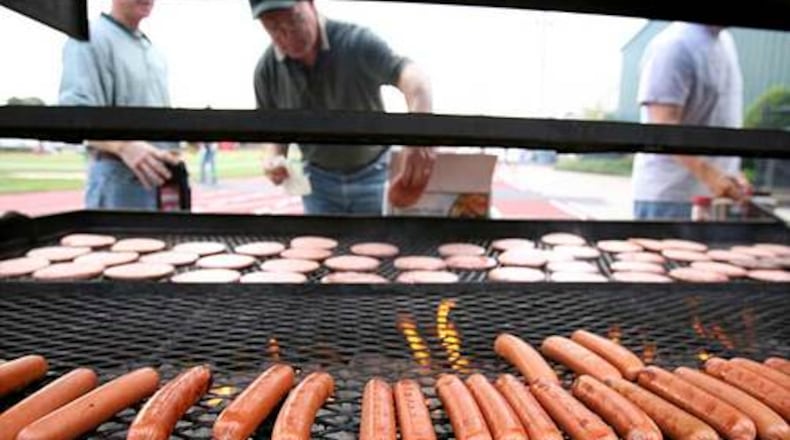While some of the larger high school football programs in Georgia have booster clubs that generate hundreds of thousands of dollars for the schools’ athletic programs, smaller schools in the state do the best they can with what they have.
Early County coach Joel Harvin said the school’s hard-working booster club has less than five people, and that he and his staff travel to local businesses to drum up sponsors. Screven County’s Ron Duncan credits the program’s modest booster club with making a huge difference in the quality of teams they put on playing fields. Pepperell’s Rick Hurst said the program has worked hard to earn the trust of local boosters, and it has paid off in a big way. Lanier County’s Kurt Williams said his program’s booster club supplements the team’s costs for player camps and coaching clinics for his staff, among other expenses.
In their own words, here are those coaches’ thoughts on booster clubs and community support, and how it helps small-town football programs.
Joel Harvin, Early County
“Our booster club is run by Julie Jarrett, who has been with us for 25 years, and there are only about 2-3 people under her. They’re very beneficial to what we do. We also have a lot of parents involved in feeding the team on Wednesday nights. But our main fundraisers are one that the kids do and one the coaches do. The kids sell five-gallon bottles of laundry detergent at $18 apiece, and we usually sell around 800 of those. That pays for spirit packs, personal equipment and other knickknacks. The coaches go to every business within the three counties that surround us and ask for sponsorships. We do that for 3-4 weeks, four hours a day after practices, and we’ve raised a ton doing that. ... At a smaller school, you have to do that, but I’d do it at a big school, as well, because it raises community spirit. If they see coaches reaching out, they’ll help somewhere down line, even if they don’t agree to be a sponsor that day. Reaching out face-to-face goes a long way because it shows coaches care about kids. It’s hard to tell four grown men (Harvin’s staff), ‘No.’”
Ron Duncan, Screven County
“Our booster club is unbelievable. It’s not a super large group, but they raise a bunch of money for us every year. We’re fortunate enough to live in a community that has supported us very well — even in a couple of our down years. To be honest with you, football makes enough to cover itself, but it benefits our other non-revenue sports and really makes a huge difference in the quality of our teams that we put on the fields and courts.”
Rick Hurst, Pepperell
“The booster club is a huge part of our program. When I left Eastside (Hurst coached there from 2005 to 2014 before taking the job at Pepperell ahead of the 2015 season), each sport had its own booster club, and I was instrumental in getting that to happen because they’d had the umbrella booster model for a long time. Pepperell also has an umbrella model as well, and I was hesitant to see how it worked. It has been a huge success for both the program and for the other programs. It supplements the coaching staff because the county only pays a certain number. Without that support, I don’t have 2-3 coaches on my staff. We also spent $50-$60 thousand on our other sports, whether it’s a baseball backstop or shootaround machines. It has worked out super. We have the reputation that if you send money, you’ll see it spent. We’re transparent about it, and anyone can attend our meetings. I’m very proud to be part of what we’ve done the last eight years to help other sports that maybe couldn’t get it done without that support.”
Kurt Williams, Lanier County
“Our booster club provides meals, camps for the summer, and they run our concession stand. It’s not our main stream of income because we’re blessed with good gates. The way our structure is set up, ticket sales determines the budget, but the booster club does supplement various costs for players over the course of the year, like camps and coaching clinics for the staff or other tools to help with their professional development. The booster club has also helped pay for workout gear for our high school and middle school. So for a small rural town, we’ve been blessed to have such a good booster club, and its only getting better the longer I stay here. We’re getting more support each year.”
About the Author
The Latest
Featured


